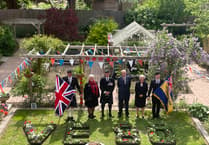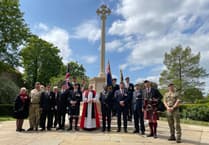WEYDON and Wrecclesham are a part of Farnham which is missing out on the substantial amounts of funding targeted at areas like the Sandy Hill and Chantrys estates, according to a group of people active within the community who are setting out to fill the social gap.
For the past year this consultative group has worked at mapping the existing provision and needs of the area bounded by the Farnham by-pass to the north, Shortheath Road/Echo Barn Lane to the south, Firgrove Hill to the east and the village of Wrecclesham down to the A31.
A report on this process states: "Because most of the area is prosperous, the significant social deprivation and need is being missed... from the funding.
"Clubs and societies operate in the community without co-ordinating the activities being offered or sufficiently increasing awareness of them to local residents."
An in-depth questionnaire to households made it clear that ignorance about what is available is a major concern.
An initial meeting in September, 2007 was attended by representatives of Wrecclesham Community Centre, local churches and organisations and local councillors. A working group was set up to gather statistical information and map the existing provision and perceived needs, with finally a community consultation via a questionnaire.
A report back four months later stated that the area was poorly served for public transport and was particularly affected by pollution problems from school run traffic and heavy vehicles.
The population of more than 3,900 was based in 1,650 households of which 350 (21 per cent) did not own cars. There were 100 lone parent households with dependent children.
All youth activities should be co-ordinated, it was agreed, to avoid duplication and competition and optimise the services provided.
A general working party had set out to identify the areas of deprivation and what services were on offer. The report stated: "Early on in the consultation process it was identified that there were strong areas of deprivation, based on the Government's indices. To the north a number of these (deprived areas) were at levels similar to those on The Chantrys and above the national average."
A number of issues concerned support for single parents and for the elderly.
Statistics from the 2001 census showed that general health was below the overall Waverley level. There were more permanently sick and disabled and slightly more unemployed. The percentage of employees was up, while that of self-employed was significantly lower.
Education figures showed that the percentage of those with no qualifications was 27.08 per cent compared with a Waverley figure of 18.39 per cent, while those with degrees (20.08 per cent) were 10 per cent below the Waverley figure. Nearly one quarter of the houses are council owned.
Among the environmental issues are fly-tipping, with waste being dumped regularly at Wrecclesham recreation ground and at the side of the road, graffiti and air quality.
The youth working party was struck by the common purpose in the youth work being provided by the various agencies and the scope for working together to fill gaps, share premises and even a joint recruitment. The specific recommendation was that a part or full-time youth worker would be recruited to work alongside all the existing organisations.
Responses to the questionnaire sent out to households in the area showed that residents' main concerns were anti-social behaviour, crime and community safety, housing and transport, plus roads and traffic, graffiti, litter and vandalism.
Suggested solutions were for police stations open 24 hours, more community policing and a visible police presence; more youth activities and better play areas, a more reliable and frequent bus service and improved local information.
It is plain that people are far from aware of the 35 varied activities listed in the questionnaire and that better communication is vital.
Numbered high in the "interested but did not know about" column were children's dancing, tennis and karate, Soccer for Tots, young people's tennis and rugby, a parenting course, the model railway club and darts/pool league, football training, Mothers' Union and WI, ladies' night, disco and karaoke, yoga, pilates, lunch club, singing classes and choirs – and the town's community Hoppa bus.
Listed activities that people would most welcome are those for school holidays, computer classes, counselling and money and benefits advice, cookery and healthy eating classes, a grow your own fruit and vegetables group and a café.
An open meeting was held at the end of September to discuss the findings of the questionnaire and smaller working parties will take a set of proposals forward. Among these are the production of an information leaflet, coffee mornings and a café, computer classes, a club for seven to 11-year-olds, home/school link activities, holiday activities and drop-ins.
Surrey, Waverley and Farnham councils and the heads of local schools are being kept informed.



